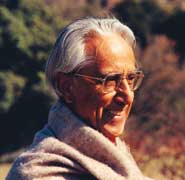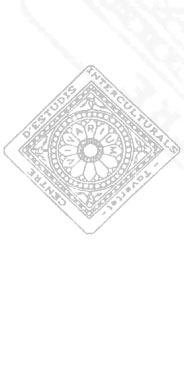




Pisteuma
“The end of the human phenomenon is the religious act” (“Philosophy as lifestyle”)
Panikkar uses this Greek neologism to express something seminal to the understanding of the human being and his cultures: “The pisteuma is needed to understand the end of the human phenomenon, that is, the religious act”. The foundation of his understanding is that “the belief of the believer belongs essentially to the phenomenon of human belief, and the human self-understand belongs essentially to human being” (“Philosophy as lifestyle”). To truly know what man is, it is necessary to know what man believes, his beliefs and his religion, since faith is a fundamental part of human being and religion a fundamental part of human cultures (The intrareligious dialogue). Moreover, for Raimon Panikkar, the religious dimension is so fundamental to the human being that it is his distinctive anthropological feature.
The religious phenomenon is not a noema, an idea or a meaning, something intellectual or intelligible, but rather a pisteuma. Thus, it does it does not pertain to the logical order of what is thought, but of what is believed. A human being is essentially a religious being, and the religious dimension has been and always will be a fundamental element of persons and cultures, both in the East and in the West in spite of the present day secularity attacks in the West. Panikkar is convinced that human experience clearly shows that deprived of faith man would not know how to bear the weight of existence and would even end up destroying himself. This makes faith not the luxury of a chosen few, but rather an essential anthropological dimension.
In this regard, Panikkar often likes to speak of the “third eye” of the 12th century Victorines (cf. later entry), the third dimension of reality, faith as an experience and knowledge that is neither rational nor irrational, but rather of a different order.
Religion and culture are essentially related: “Religion gives to culture its ultimate content, culture gives to religion its language” (La nueva inocencia).
official site